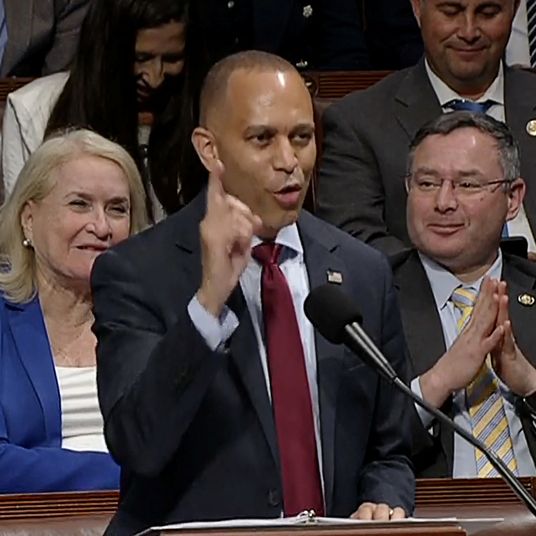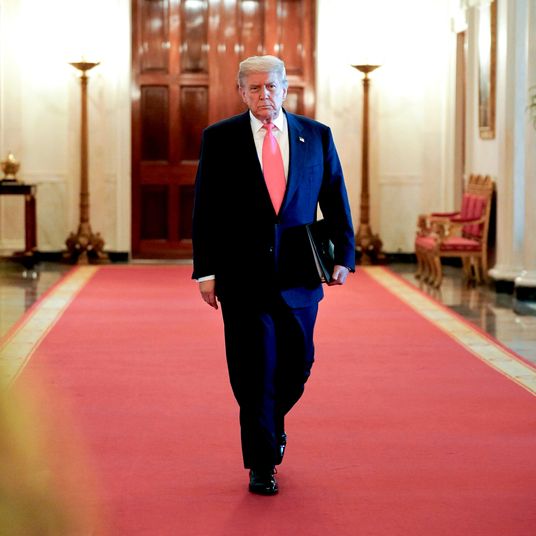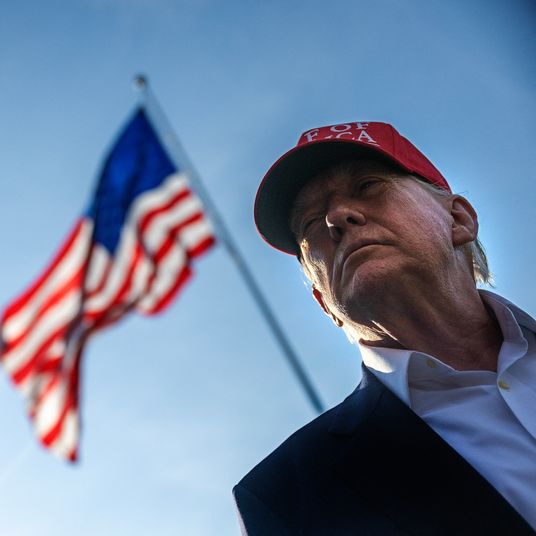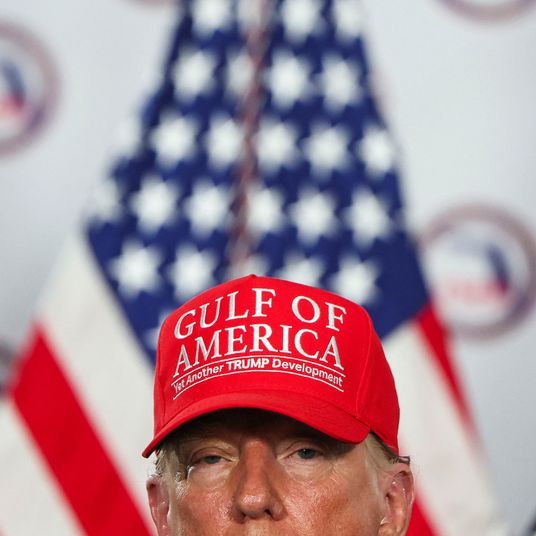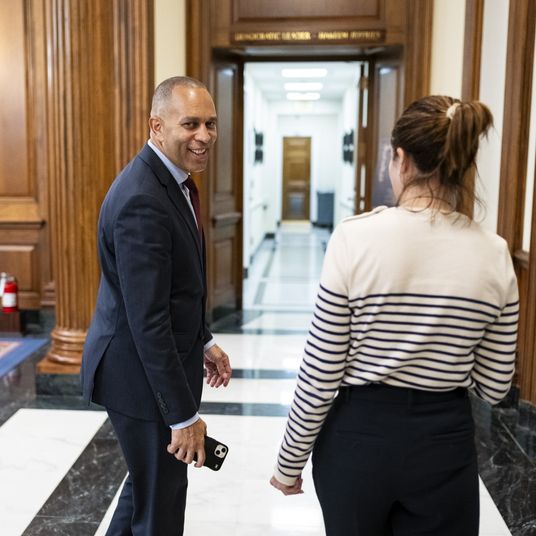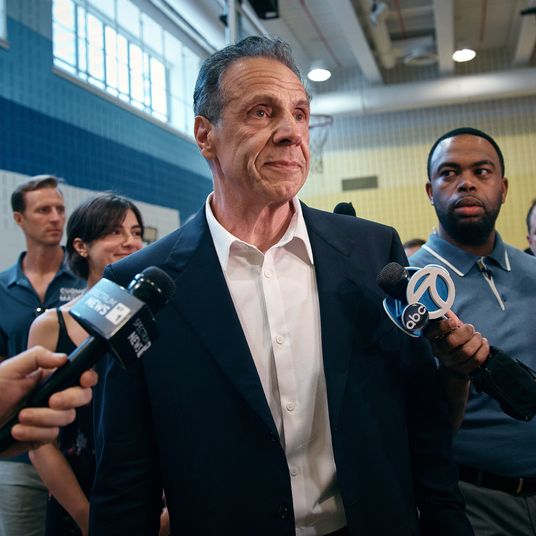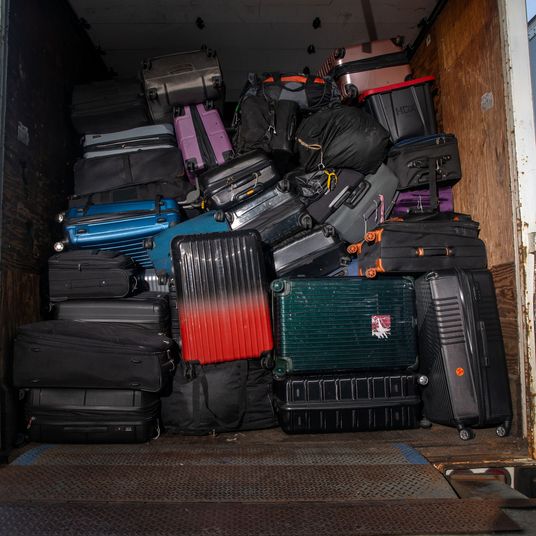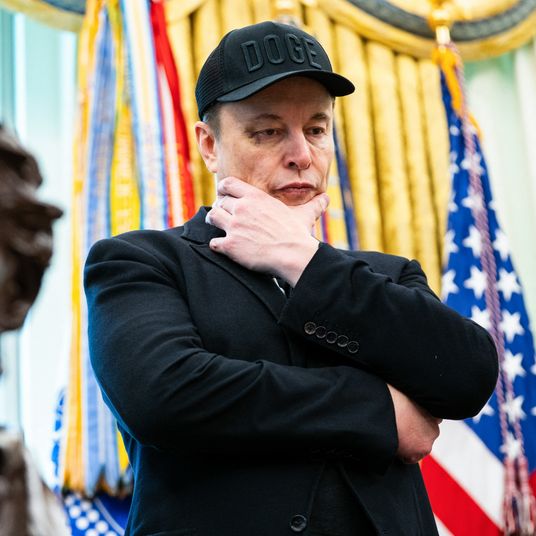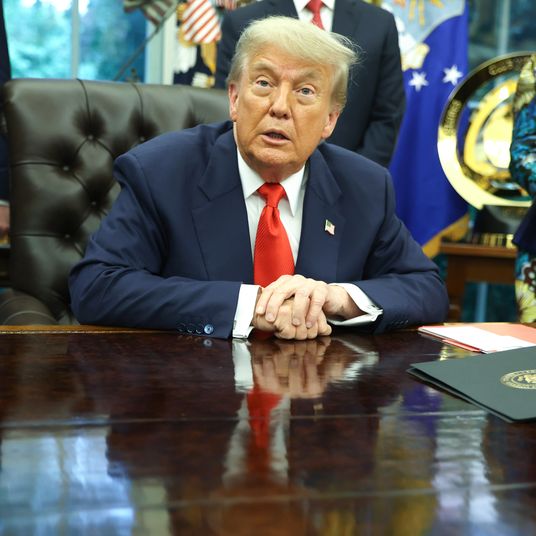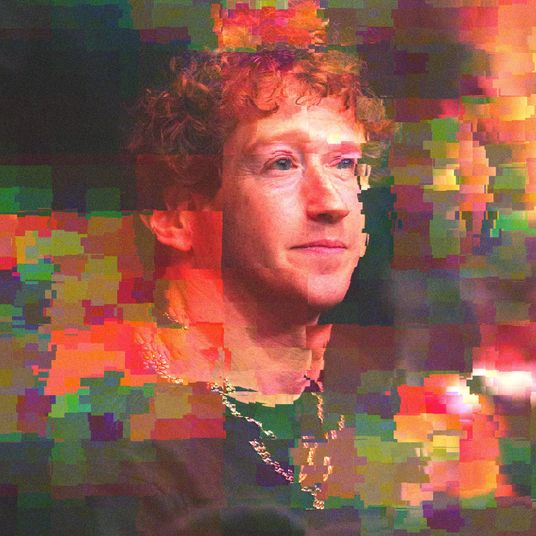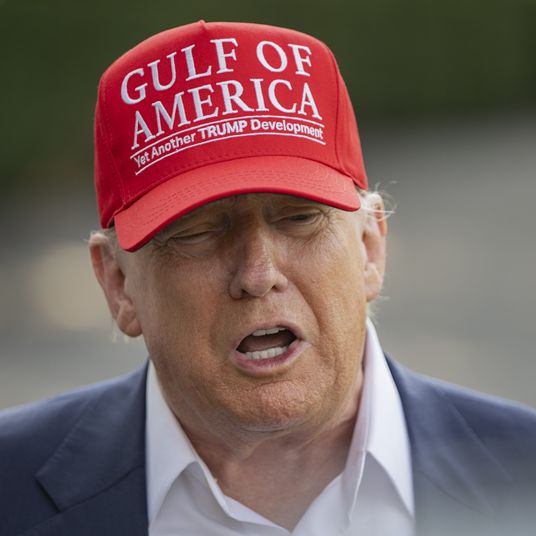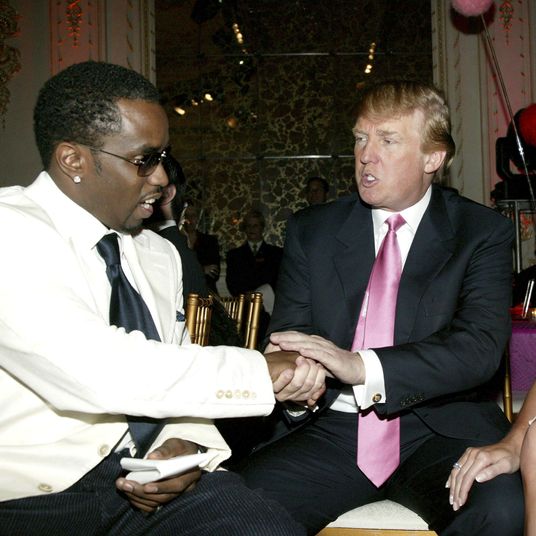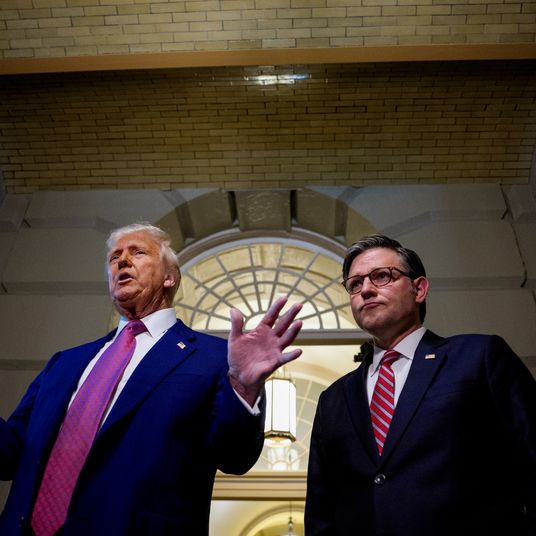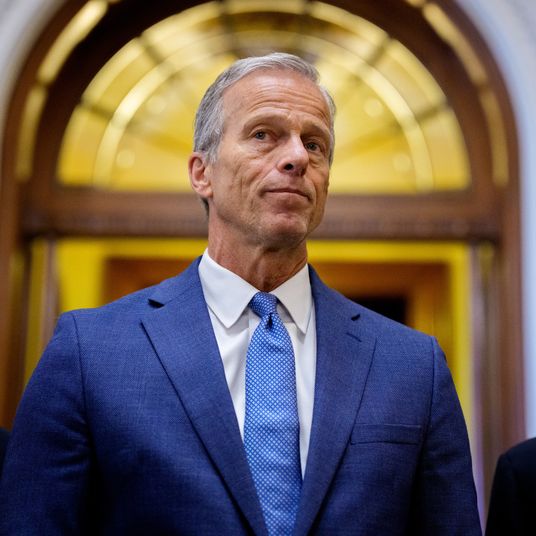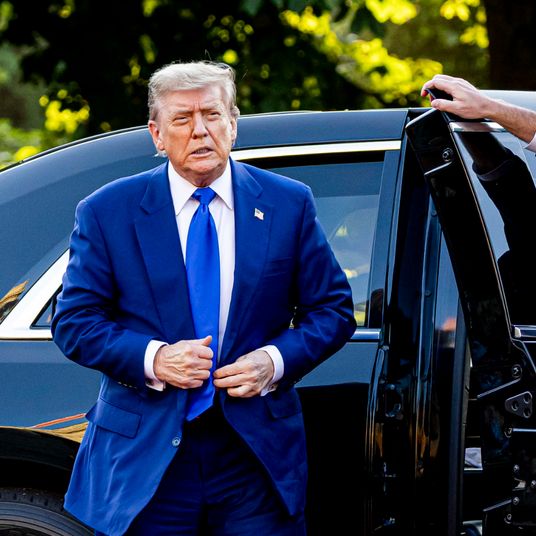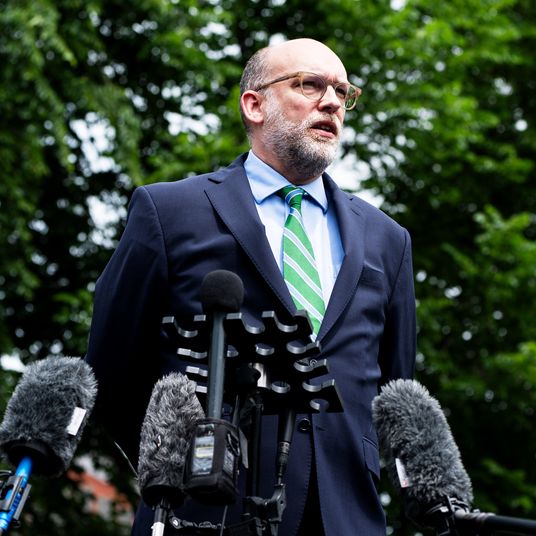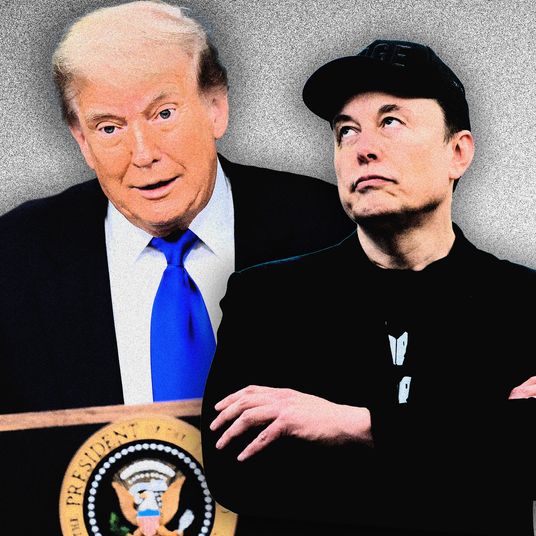
The hypothesis that COVID-19 originated from a Chinese laboratory, rather than a naturally occurring jump from animals to human beings, received a major boost over the weekend. The Wall Street Journal reports that the U.S. Department of Energy, as a result of new intelligence, now considers a lab leak the more likely origin source. DOE’s conclusion carries unusual weight because, as Jim Geraghty notes, it has “a special division that, as part of its mission to track and mitigate the proliferation of weapons of mass destruction, specializes in the study of biological weapons such as viruses.” The Washington Post confirms this division produced the new finding.
This hardly settles the matter — the DOE’s conclusion is made with “low confidence.” China has refused to provide the level of access needed to resolve the mystery, and the federal government’s agencies remain split on the virus’s origins. The alternative hypothesis, natural origin, remains plausible.
But while the scientific resolution to this episode remains elusive, the lessons it offers about the politicization of science are quite clear.
When the lab-leak hypothesis first emerged, its most prominent advocates were Republican politicians who were motivated to shift blame away from the Trump administration’s mishandling of the pandemic. Many of them combined the lab-leak hypothesis with other, more outlandish claims, such as the absurd notion that China intentionally spread the virus through its own country in order to harm America. Numerous early media reports labeled the lab-leak hypothesis a “conspiracy theory.” Some of those reports conflated the lab-leak hypothesis with wilder claims about China intentionally unleashing the virus.
The reality of the situation was that scientists disagreed, and continue to disagree, about the virus’s origins. Science by its nature contains disagreements, which even when they grow personal and bitter are supposed to be resolved through evidence and reason. But because the debate had become politicized, advocates of natural origin were able to identify their theory as the politically progressive one and use this to their advantage. Facebook for a period of time took down posts supporting lab-leak hypothesis, labeling them a conspiracy theory. As Katherine Eban reported last year, questions about the lab-leak were often sidelined inside the U.S. government.
The government and the mainstream media recognized their error early on and have correctly treated the debate as an open question. But there remains a vocal contingent of dead-enders on the left. These critics have loudly greeted every salvo by the natural-origin crowd as definitive proof, mocking lab-leakers as cranks or racists. Many of them continue to argue that dismissing the lab-leak hypothesis as a racist conspiracy theory was correct all along.
“The simple reason why so many people weren’t keen to discuss the ‘lab leak’ *theory* is because it was originally conflated by the right with ‘Chinese bio weapon’ conspiracies and continues to be conflated by the right with anti-Fauci conspiracies,” argues MSNBC host Mehdi Hassan, “Blame the conspiracy theorists.” It may be true that right-wing conspiracy theorists conflated the lab-leak hypothesis with genuinely crazy beliefs — but this is a reason for the rest of us to separate the two issues. Insisting that the lab-leak was also a conspiracy theory had the effect of making the other claims conservatives were making seem more plausible, not less.
Many left-wing culture warriors continue to treat legitimate scientific questions as tantamount to crank beliefs. “The anti-vaxxers are winning, and it’s because people in powerful roles can’t stop writing ‘just asking questions’ style articles about whether masks work or ‘natural immunity,’ or speculating, evidence-free, about lab leak conspiracies,” writes Will Stancil. Note how Stancil conflates anti-vaccine sentiment, which is genuinely fringe, with the lab-leak hypothesis and questions about the efficacy of masking, both of which are live scientific debates, as well as natural immunity, which has been shown to provide real protection. For Stancil, any scientific claim that has been or could be advocated by conservatives deserves equal contempt.
Peter Hotez — or, as his 333,00-follower Twitter account puts it, “Prof Peter Hotez MD PhD” — likewise dismisses the Journal’s reporting on the grounds that what really matters here is not the truth or falsity of the lab-leak hypothesis but the motives of people who take it seriously. “The reality: I explain in my forthcoming book @JHUPress ‘The Deadly Rise of Antiscience’ how an ecosystem of antiscience aggression discredited vaccines causing 200,000 Americans during the delta and early omicron wave to shun vaccines and lose their lives …” he tweets, “that’s what this is all about, the phony or misleading WSJ headlines, the House committee and subcommittee hearings, what you hear nightly on Fox: A whitewash of their role in precipitating or causing the deaths of thousands of Americans. The best defense is a good offense.”
I’m neither a professor, a doctor, nor a Ph.D., but I know enough to state confidently that the ethos of the scientific method is not “the best defense is a good offense.”
“The media treated the lab leak as a conspiracy early in the pandemic because the people pushing it were conspiracy theorists. Zero Hedge, Trump, deranged message boards,” insists podcaster Michael Hobbes. “Plus, we don’t even have evidence that the lab leak is true! You can’t scold the media for ‘suppressing debate’ about something that eventually turns out to be false. False things should be suppressed!”
This is an extremely bizarre view of how the media should cover scientific controversies. It is often the case that scientists propose competing hypotheses to explain a phenomenon, and eventually enough evidence materializes to prove one or more of the hypotheses false. Hobbes is apparently arguing the media is correct to label a hypothesis as false, or even as a racist conspiracy theory, as long as the hypothesis is eventually disproved — and since the lab-leak hypothesis might eventually be disproved, there’s no proven harm in suppressing it.
Obviously, it becomes more difficult to prove a hypothesis if the national media has run a series of articles claiming anybody who even entertains it is a racist crank. In any case, I prefer the media to honestly portray the state of scientific knowledge, rather than inventing a nonexistent consensus and hoping it all works out.
Volts writer David Roberts, in a tweet thread, cites Hobbes, and adds his own thoughts:
From what I can tell:
1. There’s no real practical *consequence* to whether the virus came from a lab or a market.
2. Nonetheless, a set of pundits has *obsessively* pursued the leak theory, repeatedly declaring victory despite a lack of evidence.
3. However, the pundits involved are at great pains to assure us that there’s definitely no racism or xenophobia involved in their obsessive pursuit of this theory w/ no evidence & no real consequences.
What explains the obsession? They don’t say. Definitely not xenophobia though! Oh, and the final cherry on this shit sundae: the pundits in question, the ones obsessively discussing the lab leak, are also whining that discussion of the lab leak has been ‘suppressed.’ As they obsessively discuss it.
There are, in fact, two important reasons to care about the origins of COVID-19. One is that the answer has important implications for preventing future pandemics. If the pandemic originated from gain-of-function research, then such research might be seen as increasing the risk of another pandemic rather than decreasing it.
More importantly — and the reason the issue has inspired me to write several columns on it — is that it has exposed an ugly tendency to abuse scientific authority for political purposes. The American right is genuinely anti-science, a tendency I’ve analyzed many times. In 2020, I wrote about how the right’s decades-long hostility to science drew it toward crank theories on COVID.
The overt anti-science crankery on the right became a sort of cultural breaking point. For many liberals, following the science became not just a guide to developing sound policy beliefs, as it ought to be, but a tribal marker. It became very easy to paint any dissent from liberal orthodoxy as “anti-science.” Scientists themselves can succumb to the temptation to either rally non-scientists in order to gain political leverage in disputes against other scientists, or to claim the banner of science behind values that are not scientific at all. Witness the 2020 spectacle of public-health authorities declaring that the ban on large outdoor gatherings need not apply to anti-racism protests or the continuing claims that science is in complete agreement on protocols for transitioning gender-questioning youth.
The temptation to use ideological criteria to settle scientific questions is one that ultimately poses a threat to science itself. The correct way to follow the science is to actually follow it — not to use it as a mascot or as a justification to place your own views beyond criticism.

